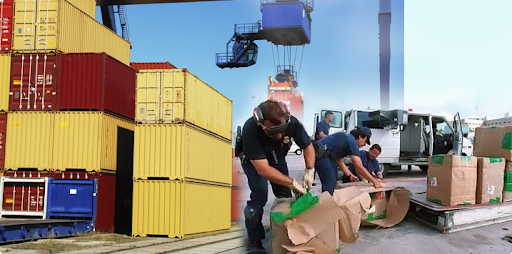Customs clearance is a crucial process that businesses must navigate when importing or exporting goods across international borders. It involves complying with regulatory requirements, paying duties and taxes, and obtaining necessary permits to facilitate the smooth movement of goods. Logistic services, including specialised third-party logistic services, are pivotal in streamlining this complex process and ensuring compliance with customs regulations.
Understanding Customs Clearance
It is the process by which customs authorities control the flow of goods into and out of a country. It involves reviewing documentation, inspecting goods, and assessing duties and taxes. A 3PL service specialising in customs clearance can expedite this process by handling documentation, liaising with customs authorities, and ensuring the requirements are met. This expertise is invaluable for businesses looking to minimise delays and avoid penalties associated with non-compliance.
The Role of Logistic Services in Customs Clearance
Logistic services, particularly those offered by logistic providers, streamline customs clearance by leveraging their knowledge of international trade regulations and customs procedures. These services facilitate the efficient movement of goods across borders, ensuring that shipments comply with import/export laws and regulations. By partnering with a logistic service, businesses can benefit from their expertise in guiding complex customs requirements, reducing administrative burden, and accelerating the clearance process.
Ensuring Compliance and Accuracy
One primary advantage of using logistic services for customs clearance is ensuring compliance with regulatory requirements. Experienced third-party logistic providers know the documentation needed for different goods and destinations. They ensure that all paperwork is accurate, minimising delays or rejections at customs checkpoints. This attention to detail facilitates smoother clearance and enhances overall supply chain reliability and customer satisfaction.
Optimising Efficiency and Speed
Efficient customs clearance is essential for maintaining supply chain efficiency and meeting customer expectations. Logistic services employ streamlined processes and electronic systems to expedite clearance times, reducing the transit time of goods. By leveraging technology and automation, these services can submit documentation electronically, track shipments in real time, and address any issues that may arise during the clearance process. This proactive approach minimises delays and ensures that goods reach their destination on schedule.
Cost-Effective Solutions
Outsourcing customs clearance to a third-party logistic service can offer cost-effective solutions for businesses. Instead of investing in internal resources and expertise to manage customs procedures, companies can rely on the specialised knowledge and infrastructure of a logistics provider. This approach allows businesses to optimise operational costs, streamline administrative processes, and distribute resources more efficiently.
Enhancing Supply Chain Resilience
Effective customs clearance contributes to overall supply chain resilience by reducing the risk of disruptions and delays. By ensuring that goods clear customs smoothly, businesses can maintain continuity in their operations and fulfil customer orders promptly. Logistic services are critical in mitigating risks with international trade, such as regulatory changes or unforeseen challenges at border crossings. Their expertise and proactive management help businesses navigate complexities and maintain a competitive edge in global markets.
Logistic services are crucial in streamlining the customs clearance process and ensuring compliance with international trade regulations. By partnering with experienced 3PL providers, businesses can optimise efficiency, reduce costs, and enhance supply chain resilience. These services expedite clearance times and support global trade initiatives, enabling businesses to navigate the complexities of international markets effectively. By leveraging the expertise of logistic services, companies can position themselves for success in an increasingly interconnected and competitive global economy.






